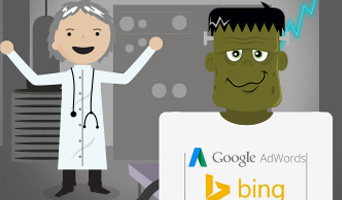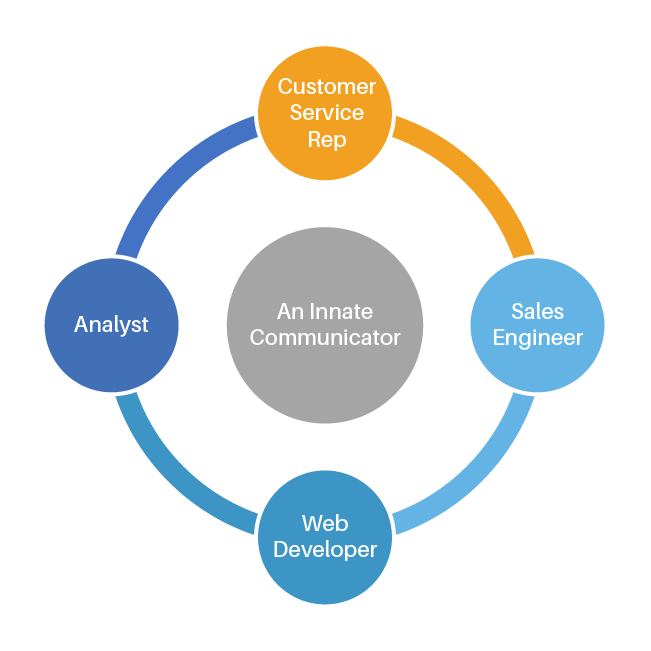[display-name-category]
[post_author]
“Look! It’s moving. It’s sha — it’s… it’s alive. It’s alive… It’s alive, it’s moving, it’s alive!” 
-Henry, Frankenstein (1931)–
As I’ve submerged myself in the world of PPC and online marketing in general, many questions have arisen, some of which have been regarding the ideal profile for PPC professionals.
This question has most likely kept quite a few agency HR and recruiting officials up at night tossing and turning, including our own. I’m also sure that all professionals practicing the PPC trade have at one point or another asked themselves this as well.
Our PPC professionals bred or born?
More specifically, is there a set of aptitudes and skills that someone interested in embarking in a career in PPC must have in order to become successful? Or can anyone – regardless of the skills they bring or don’t bring – be “trained” and sculpted into a beautiful work of Ad-creating, ROI-driving, art?
The Bare Minimum Skill
The idea for this blog entry came after I read a blog post called “The Personality that succeeds in Customer Support” written by Gregory Ciotti. Interestingly, Ciotti mentions that although previous experience in customer support is crucial to becoming an excellent rep, there is a “minimum viable personality” that one must bring into the customer service trade which he mentions as: “social sensitivity—the ability to read and react to people’s emotions”.
Hmm… That made me think when I read it. Do we share social sensitivity as the bare minimum skill in the PPC trade? I believe the answer is yes, and no…
Social Sensitivity or Empathy is definitely crucial to have as a PPC professional because our bread and butter entails working directly with clients. But when I think about some of our best and most successful SEM strategists at White Shark Media and the type of personality they have as well as their skill sets, the common denominator is an absolute willingness and innate ability to communicate!
Our collective experience and numerous day-to-day encounters with our clients dictate that a PPC professional must be -first- an innate communicator followed by the combination of skills that allows him or her to fulfill the duties of a customer service representative, sales engineer, web developer and an analyst.
1. The Customer Service Representative
Ok, so here is where “social sensitivity” comes into play. Yes, this means that you have to inherently care about your clients and do everything possible to make sure they are well served. As I wrote in my previous blog entry “Why learning to Over-Deliver is still the best business decision for PPC agencies”, we have to be ready to respond to client’s requests fast as well as go the extra mile in making sure that everything is done right!
The keyword to best describe this skill is the P-word. Before your imagination flies away, I’m referring to PATIENCE! You surely need plenty of it. Nurturing a profitable online marketing campaign is no walk in the park. It takes time and tons of hard (unrelenting) work. Parallel to optimizations and monthly reports you have to walk your clients through the entire process. I’m breathing heavy just thinking about it. This includes constantly applying customer service techniques such as:
- Double-checking when communicating to your clients, which refers to constantly checking for comprehension. Only because you’re an AdWords wizard and probably have read Andrew Lolk’s book from front to back fifty times doesn’t mean your clients have or even want to (although it would be wonderful). They just want to see their revenue increase.
- Taking advantage of any opportunity to build rapport. Yeah, you probably love to fill your mouth with endless spiels on CTR, impressions, and quality score, but you need to make sure to put some extra spice into client interactions. It might even make the entire process fun, and that’s an F-word everybody loves. If done right, you’ll even share some laughter.
- Asking as many questions as possible or needed. Questions control conversations and they also help in understanding your client’s unique needs. They’re great at denoting involvement and commitment on your end.
2. The Sales Engineer
I know you must be thinking this is just a fancy word for a salesperson. That’s what I thought it was when I first heard the term. If the job of a salesperson is merely to acquire a client then the role of a Sales Engineer (as explained by Wikipedia) goes way beyond that and is to manage the entire client’s life cycle:
Pre-Sales Role
Help potential customers understand, compare, and contrast different solutions as well as diminish doubt. Let’s be honest, when an advertiser starts working with an agency, they’re not completely sold on the idea… We hear it every day at White Shark Media – “I had a horrible experience with my previous agency” or as I was told by a client from New Jersey last week “I think PPC is the biggest scam on the internet”.
We must be able to cause such a powerful first impression, that the client’s “buyer’s remorse” is dealt with.
Post-Sales Role
Troubleshoot problems with their implementations—that is, to help ensure that the solutions work successfully once the buying decision has been made. Once the first impression has passed, what comes next? The initial three months or ninety days period is “hands down” the most crucial period. That’s the time in which the campaign must be prepared, structured, and set in the right direction.
You can surely bet you’ll be troubleshooting a lot in that period. Bidding, daily budget, delivery method, Ad extensions, keyword match type, location targeting, and the list goes on. Just think of the many buttons and switches in the cockpit of an airplane, it is something like that. If the campaign is not on track or even surpassing goals after the first three months then you probably did a wrong turn to Mordor.
Relationship Management
Maximize sales for the sales engineer’s employer and their clients.
Building long-term business relationships are the ultimate goal. Don’t you think? This will ensure both long-term profitabilities for the agency and the advertiser. Time is the essence in our trade because more time equals more data, and more data means more substance to effectively optimize campaign strategy.
An effectively structured campaign strategy should equal to an increased revenue stream for advertisers. An increased revenue stream for the advertiser is directly proportional to the agency’s revenue stream. It is by all means a symbiotic relationship with WIN-WIN at its core.
3. The Web Developer
Hold on there! I could already see some eyebrows crunching when reading the word “web developer”. I don’t mean you have to be a full-blown web geek (all due respect to web geeks) and write code. But let’s back up a tad. Everything we do in PPC is on the internet and directly related to websites. You’ll more often than not find yourself dealing with the following:
- Speaking to your clients about the needs of their website, the expected needs of the website’s audience, and planning how it should take care of factors such as bounce rate.
- Explaining the -process of-, function, and importance of installing call and conversion tracking codes.
- Advising the client on information the website should contain as well as graphics and the overall layout of the site.
- Monitoring and interpreting website traffic using Analytics.
So – no, you don’t have to necessarily know how to program but yes, you have to have a very strong notion of how a website works on its front-end as well as its back-end. It is your job to create absolute harmony, or as we like to call it “relevance” between the Ads you create, the keywords that trigger the Ads, and the website they lead to.
4. The Analyst
Last, but certainly not least comes the analyst. Whenever I think of the word “analyst” it paints a picture of a Gordon Gecko-type stock analyst in front of multiple screens analyzing market trends. But actually, if you look for this job title in the US Bureau of Labor Statistics, you’ll find mainly three types of analysts: budget analysts, financial analysts, and market research analysts. Of these three perhaps the most precisely relevant to PPC is the market research analyst, mainly because we do the following on a daily basis:
- Measure the effectiveness of online marketing strategies.
- Evaluate methods for collecting data.
- Gather data about consumers, competitors, and market conditions.
- Analyze data using diverse tools and web-based applications.
- Convert complex data and findings into understandable tables, graphs, and written reports.
- Prepare reports and present results to clients and management.
Do I really have to explain each point? If you know anything about online marketing, you certainly know how all these points translate into our PPC universe. But wait, the analyst function doesn’t stop with market research. I would also include some duties of the budget and financial analyst on the list. For example:
- Explain budget recommendations to clients for funding requests.
- Monitor spending to ensure that it’s within the budget.
- Estimate future financial needs.
- Evaluate current and historical financial data.
The analyst role comes in heavy on the D-word, you guessed it – Data! What did you think it was? Day-in and day-out we’re constantly analyzing plenty of data, making sense of it, and communicating it to our clients in a way they understand and make business sense to them.
The Winning Formula
Whether you’re someone interested in starting a career in PPC, an agency trying to lock-down on the best profile to hire, or an existing professional in the industry who wants to further understand the skills needed to succeed, I believe this is the winning formula.

To answer the initial question, PPC professionals are neither both completely born nor bred, they are a perfect combination of “born” and “bred” traits coming together to form a quite peculiar hybrid between an innate communicator, a customer service rep, a sales engineer, a web developer, and an analyst.
This conclusion leads me to a final question. Who are we then to our clients? I like to believe that we are and should strive to become a trusted advisor whose only true commodity is knowledge. If so, I would like to quote the illustrious words of Benjamin Franklin:
“An investment in knowledge pays the best interest.”
Have a Happy and Productive Holiday!
I will shamelessly steal this advice from Google’s ZMOT, (recommended read), if you do not have someone that is in charge of your Holiday Marketing Strategy, namely Google Shopping Campaigns, then you have to step up your game or bring someone to help you get through the Holidays.






